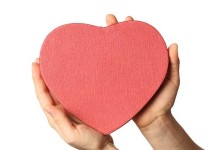
Weather forecasters warn that the coming July will be hot in many parts of the world. According to doctors, everyone should treat their well-being with special attention during this season, but first of all this concerns the people suffering from heart diseases. The doctors have told how to optimally adjust daily life in this difficult period.
The heart, blood vessels and the respiratory system are particularly affected by the increased load caused by the hot weather. That is why it is important for the people with cardiovascular problems to concentrate on their health in July.
Under the influence of heat, the concentration of sodium increases in humans; besides, sodium is known to retain fluid. A healthy body deals with this problem. But under pathological conditions (for example, hypertension or coronary artery disease), this contributes to cardiac decompensation and results in the increase in blood pressure.
According to experts, a loss of important minerals occurs during the “heat wave”. This may have a negative influence on the ability to handle stress and on the human psyche.
In the hottest month of the year, doctors advise to control blood pressure and follow a number of recommendations. In particular, one needs to find an opportunity to breathe fresh air. Staying in a stuffy, heated room for a long time has a negative impact on well-being, and if you have to come back from the office into the heated apartment – the load is twice bigger. Doctors recommend walking in the morning and in the evening, when there is no heat, and only in the green zone.
The people suffering from heart problems need to avoid sudden changes in temperature inside and outside the home and maintain a correct diet. One should eat more vegetables and greens – they increase endurance and “heat resistance” of the body. Sweet, fatty, salty foods will just create extra load.
Furthermore, water balance is very important in the heat. According to experts, you need to drink 1.5 times more water than usual, even if you do not feel thirsty.
However, taking certain medications may affect the fluid balance in the body and thermoregulation. It is necessary to pay attention to such commonly used drugs as diuretics, anti-allergy means, sedatives, pain relievers and anti-inflammatory drugs, including aspirin and paracetamol.





